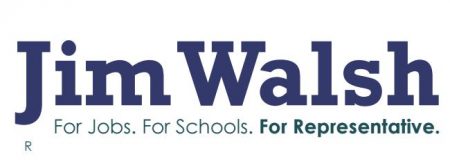The Daily World –
Grays Harbor County’s unemployment rate was back up over 11 percent in the most recent monthly report (from January). Not the worst in the state, but near it. These stubborn high unemployment numbers raise questions about how we do business. And politics.
The business environment and conditions of a place are defined more by local elected officials — mayors, city councils, county commissioners and administrators — than by state or federal officials. Local officials control zoning and land use, many licenses and permits, most fees and the main face-to-face interactions with business and industry. They can make life easy … or difficult … for business.
But, here on the Harbor, we seem to think that governors, state legislators and members of Congress are the ones who deliver economic solutions and jobs.
They can’t.
One clear illustration of their ineptitude was a picture that appeared in The Daily World a few years ago. In 2012, at the opening of the final iteration of Harbor Paper, a herd of politicians (then-Gov. Gregoire, current Gov. Inslee, then-Rep. Dicks, current State Sen. Hargrove … and others) grinned and clapped while Gregoire talked about “investment” and “family” and the great financing package she’d helped put together for the project. Inslee added this bit of fluff: “It doesn’t matter what the weather is, the brightest place today in the state of Washington is right here at Harbor Paper, that’s for sure.”
Within months, the mill was closed. The owners claimed that the state-arranged financing package never materialized; the lender claimed the owners weren’t straightforward about their plans. More than a hundred Harborites lost their jobs. The PUD was stuck with half a million dollars in unpaid bills. The City of Hoquiam lost hundreds of thousands of dollars in expected tax revenues.
And Inslee was elected governor.
Economic development works best when it’s led by local officials, who assemble their own plans — industries they want to attract, businesses with whom they’ll work and specific goals they intend to achieve — and use those plans to direct local policy and negotiate for state or federal support. This is how cities and counties do it in Texas, Florida and other booming states.
It’s even how they do it in King County. The Transportation Package currently working its way through the state Legislature is based on a well-thought-out plan whereby all of Washington will pay higher gasoline taxes in order to ease Seattle’s traffic-congestion problems.
The Harbor hasn’t had such well-thought-out plans. We stumble from crisis to crisis, hoping that when trouble comes we can “sit down with people” in Olympia or D.C. and ask them to give us money.
This approach isn’t working.
According to the most recent numbers from the Washington Regional Economic Analysis Project (based on data provided by the U.S. Department of Commerce) these are the top three industry sectors — in terms of jobs provided — in Grays Harbor County:
Local government, 4,789
Health care &social assistance, 3,535
Retail sales, 3,411
So, the largest non-government employer on Grays Harbor is retail sales. And it’s dwarfed by government employment. That’s not a good sign. As a friend of mine says: “A job is something that generates tax revenues. Something that consumes tax revenues is a benefits program.”
Basically, we’ve swapped an economic model based on one single industry (timber products) for one based on another (government services). But an economic model based on government services generates constant budget deficits, which require constant begging. And the people providing those government services — teachers, road crews, hospital employees, cops and firefighters — hang in the balance. If the begging doesn’t work, they face layoffs and pay cuts and vanishing pensions.
We can fix this. We can get away from the constant crises. But, to do it, we need to have a well-thought-out plan for building a more diversified employment base. True economic development. And we need more than just the Port of Grays Harbor, which has been our main economic-development engine for the past decade or so. We need to revive old industries — logging, commercial fishing, transportation/shipping, real estate development. And add new ones — oil, alternative energy, industrial hemp, legal marijuana.
We need an “all of the above” strategy.
And we have to stop surrendering to the heckler’s veto every time a new industry is interested in locating here. Lately, there’s been some hysterical screeching about transporting crude oil through the Port. These screechers should look up the term “zero-risk bias.” But they probably won’t. I’ve noticed that the people most hysterical about crude oil are the same ones who also object to: commercial fishing, timber harvesting, legal marijuana, golf courses, trucking, manufacturing, dredging the Port channel, real estate development, Wal-Mart, etc., etc., etc.
You can’t say “no” to everything. Or businesses will continue to avoid Grays Harbor and there will no tax base to support your government benefits.
Opening the Harbor to more private-sector business doesn’t mean every resident will agree with every venture. There will always be protesters. But everyone needs to understand the importance of having a diversified local private-sector economy. It’s how you generate good jobs and improve the quality of people’s lives.
Jim Walsh lives in Aberdeen, in an old house that he and his wife are gradually fixing up, and owns a technical-book publishing company. He’s also Vice Chairman of the Washington State Republican Party.
– See more at: http://thedailyworld.com/opinion/columnist/jim-walsh-we-can-t-say-no-everything-it-s-too-risky#sthash.X2cJSfqP.dpuf

